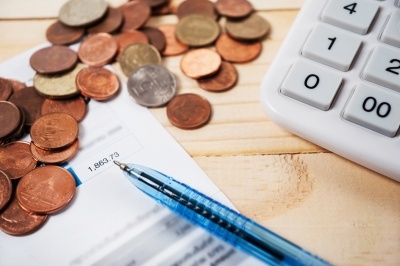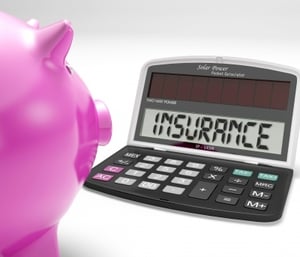 When you fall behind on your mortgage payments, you don't instantly lose your home to foreclosure. It takes time for the legal process to play out. In 2016 it took more than 1,000 days on average to complete foreclosure. That's nearly three years, which is a long time to be living in your home without paying your mortgage.
When you fall behind on your mortgage payments, you don't instantly lose your home to foreclosure. It takes time for the legal process to play out. In 2016 it took more than 1,000 days on average to complete foreclosure. That's nearly three years, which is a long time to be living in your home without paying your mortgage.
While you're living in your home sans mortgage you will continue to have other bills, but money could still be tight, and your credit's in bad shape.
If that's the situation you're in, which of your remaining bills should you pay?
Pay Your Utilities
You are not going to be able to live in your house without electricity or plumbing, so you should continue to pay your electric, gas, water, and sewage bills even when you're not paying your mortgage.
If you're having trouble paying those bills, call the providers of those services to see if they can help you. Most electric companies have programs to help people in need.
There's also the Department of Health and Human Services' Low-Income Home Energy Assistance Program (LIHEAP). You can view information on how to apply here. And state and local charities also provide assistance to people in need -- especially as we're nearing winter.
A cost averaging plan, which keeps your energy bill consistent throughout the year, could also help you cope with the months when you use more electricity than normal.
Should You Pay Your Property Insurance?
 A typical mortgage payment includes principal, interest, taxes, and insurance. When you stop making the mortgage payment, you stop paying into your escrow account, and your homeowners insurance may not be paid. To protect their interest in your home, your bank will either advance you the costs and pay your insurance premiums or force-place an insurance policy, and add that to the amount you owe them.
A typical mortgage payment includes principal, interest, taxes, and insurance. When you stop making the mortgage payment, you stop paying into your escrow account, and your homeowners insurance may not be paid. To protect their interest in your home, your bank will either advance you the costs and pay your insurance premiums or force-place an insurance policy, and add that to the amount you owe them.
If you want to keep your home, you can contact your insurance company and arrange to pay them directly to minimize the amount you're falling behind by each month. Everything you owe will have to be accounted for if you ever reinstate your mortgage through something like a loan modification. So paying insurance even when you're not paying your mortgage could make sense for you.
(Hurricane season warning: Force-placed insurance doesn't often cover the contents of your property. A storm or natural disaster could spell catastrophe for your belongings.)
Homeowner's Association (HOA) Dues? Maybe.
You should pay your Home/Condo-owners' Association dues when you're in foreclosure because the association can sue you if you don't. If you work things out with your lender and get out of foreclosure with them, the homeowner's association can foreclose on you for the money you owe them, often more quickly than your bank can. You can avoid this by continuing to pay your HoA dues, even when you're not paying your mortgage.
If you're going through the foreclosure process and don't intend to stay in your property, you need to be aware of the rights your HoA has, and understand that their foreclosure suit can proceed more quickly than your mortgage lender's.
What Not To Pay
If you don't have enough money to pay all of your bills, then make sure you understand what the consequences will be for the bills you skip so you can make an informed decision. Some bills could end up at a collection agency and impacting your credit further, and others could cause you to fall into foreclosure.
If you need to save money, a better solution than not paying bills is to see if you can get a reduction in what you pay each month for things like cable and internet, cell phone, and car insurance. You might be able to save money with a reduction in your internet speed, insurance coverage, or phone data or minutes. Maybe you could get a temporary forbearance on some debt. Even if you don't think it's likely that you'll succeed, it never hurts to call up and ask if there's a way to save some money.
(See USA Today Article: Cable TV Bill Too High? Here's How You Can Lower It)
Loan Modification
If you're behind on your mortgage and need your loan reinstated with lower monthly payment, a loan modification is your only hope. To modify a loan means to make a permanent change to one or more of its terms, such as the interest rate, term length, or principal balance.
Loan modifications can help you avoid foreclosure and save money for decades to come, but they are frequently denied and notoriously difficult to get approved. Unless you happen to be an expert on foreclosure law and loan modifications with a lot of free time on your hands, you should consider working with an experienced professional, such as a foreclosure defense attorney.
A qualified attorney can help to keep you out of foreclosure for as long as possible and maximize your odds of being approved for the best loan modification possible.
Image courtesy of jimbophoto at FreeDigitalPhotos.net










